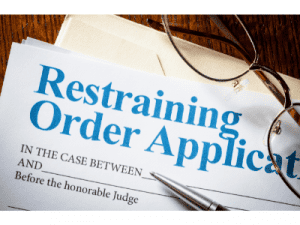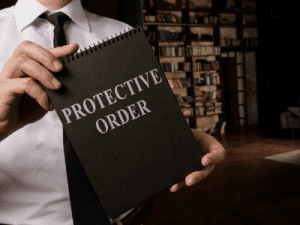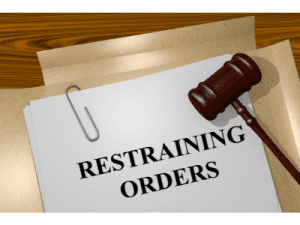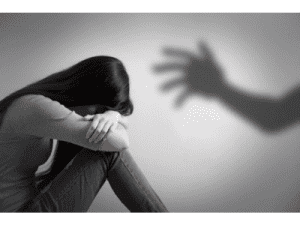ABOUT COLORADO RESTRAINING ORDERS
 A Colorado court-ordered restraining order require an accused abuser or harasser to stay away from the protected party. Restraining orders are issued to safeguard anyone at risk of harm, like domestic violence, sexual assault, imminent danger, or another type of threat.
A Colorado court-ordered restraining order require an accused abuser or harasser to stay away from the protected party. Restraining orders are issued to safeguard anyone at risk of harm, like domestic violence, sexual assault, imminent danger, or another type of threat.
The court can issue a temporary restraining order to anyone who fears their safety. A simple form is all that is required.
When the court hears the case, they may issue a 14-day temporary restraining order (TRO). Moreover, a judge may give a permanent restraining order (PRO) to the person seeking protection if the threat remains. A permanent restraining order may last indefinitely if the protected person fears further harm.
Protection orders are issued automatically by the courts in some criminal situations. They are common after domestic violence and sexual assault arrests where local law enforcement has responded.
Purpose Of A Restraining Order
A restraining order is a court order that explicitly orders the restrained party to stop harming, harassing, and threatening another person. A judge can issue an emergency protection order or permanent protection order after a family member files a petition asking the court for protection from such acts as domestic abuse.
The abuse can be any physical or emotional harm, unlawful sexual contact or economic abuse committed by a family member or someone you live or formerly lived with, or threatened bodily harm. They are used to protect a person from stalking, harassment, and menacing actions by the defendant.
A restraining order can require one family member to move out of their home if shared with the abuser and prevent the abuser from coming near the petitioner and threatening harm. And it typically orders the defendant to stop contacting other family members listed on the protection order.
Violation of a restraining order will be met with arrest if there are reasonable grounds to believe it is necessary to prevent further abuse.
Filing A Civil Restraining Order
 Obtaining a Colorado civil restraining order against an alleged abuser provides many immediate advantages to the person requesting it:
Obtaining a Colorado civil restraining order against an alleged abuser provides many immediate advantages to the person requesting it:
- Provides a formal order to the defendant from the court not harm or harass you further.
- Removes the defendant from the residence.
- Ceases all communication from the defendant directly or via third parties.
- Prevents the defendant from getting too close to the petitioner.
- Gives the petitioner temporary control of the children.
In Colorado, a civil protection order is filed against an alleged perpetrator and prohibits and restrains the person from engaging in certain acts. A request for a protection order filed against “family or household members” can be issued only after filing a formal complaint.
These family or household members may include spouses, ex-spouses, parents, children, stepchildren, parents through adoption or other means, any person related by blood or marriage, people currently residing together or who have resided together in the past.
TEMPORARY RESTRAINING ORDER (TRO)
 A temporary protection order is a court order signed by a judge to protect someone who feels they are in imminent danger from the restrained party.
A temporary protection order is a court order signed by a judge to protect someone who feels they are in imminent danger from the restrained party.
A temporary protection order is a court order signed by a judge to protect someone who feels they are in imminent danger from the restrained party. A temporary protection order usually lasts no more than 14 days, after which there will be another hearing where the judge will decide whether to grant or deny the complete request for a permanent order.
To file for a temporary protection order, the requesting party will need to go to the Colorado judicial branch district court in your county and fill out an application during regular court hours. You can find information on your county’s court website or by calling your county clerk’s office. (You should check your county’s law about which court hears requests for temporary restraining orders because in some counties, that will be the district court, and in others, it might be the county or city courts.) You can represent yourself or have a lawyer represent you. When you file for a temporary order, there is no fee to file.
You will need to describe your situation and why you need a temporary restraining order. The judge will decide whether or not to issue a TRO and what terms it should include. You may want to fill out as much as possible ahead of time so that when you go into court, all you’ll need to do is review the order with the judge and make sure all your information is accurate.
The judge could decide to issue an emergency temporary civil protection order without even seeing your evidence, but this doesn’t usually happen. The judge will want to know the terms of your relationship agreement with the other person and other details. Be prepared to explain why you are in danger or need help.
EMERGENCY PROTECTION ORDER (EPO)
 Colorado courts can issue three-day restraining orders known as an emergency protection order. The police can obtain a victim’s emergency protection order if the victim is in imminent danger of domestic abuse or sexual assault and service cannot be made during regular court hours (evenings, weekends, or holidays).
Colorado courts can issue three-day restraining orders known as an emergency protection order. The police can obtain a victim’s emergency protection order if the victim is in imminent danger of domestic abuse or sexual assault and service cannot be made during regular court hours (evenings, weekends, or holidays).
Permanent Protection Order (PPO)
 If you have been served with a temporary restraining order (TRO), a hearing will be held to determine if the restraining order should be made into a permanent restraining order (PRO). The restrained person will have the chance to convince the judge to dismiss the restraining order altogether at this hearing.
If you have been served with a temporary restraining order (TRO), a hearing will be held to determine if the restraining order should be made into a permanent restraining order (PRO). The restrained person will have the chance to convince the judge to dismiss the restraining order altogether at this hearing.
Attorneys can represent both the protected party and the restrained party in a permanent protection order court hearing. They can submit evidence and summon witnesses.
If a permanent restraining order or permanent civil protection order is issued against you, two (2) years must pass before you can motion the court to dismiss or modify it.
We strongly recommend that you prepare for this hearing with a highly experienced Colorado restraining order lawyer as soon as possible to give you the best chance at preventing the issuance of a permanent protection order (PPO) against you.
Additional notes about a PPO:
- Colorado courts do not require the restrained party to be present at the hearing to issue the protective order.
- The restrained party must be served when the permanent protection order is issued and not in attendance.
- The protected party may not serve the restrained person themselves. Instead, the protected party can ask the local law enforcement agency, a process server, or anyone over 18 who is not named in the protection orders.
Consequences Of Violating A Restraining Order
 It is a criminal offense to violate the terms of a protective order. Arrests can be made by local law enforcement when there is probable reason to think that a restrained party has violated the provisions of either a long-term or short-term protective order.
It is a criminal offense to violate the terms of a protective order. Arrests can be made by local law enforcement when there is probable reason to think that a restrained party has violated the provisions of either a long-term or short-term protective order.
The defendant who violates the terms of a protection order faces serious consequences. The exact punishment depends on whether this is a first or subsequent violation. Different penalties depend on whether or not the protective orders are civil or criminal and if the offender has already been punished for violating an order of protection.
First offense: not more than $1,000 fine and/or up-to 90 days in jail. It is considered a class 2 misdemeanor.
Second offense: at least $100 and up to $5,000 fine and/or up-to two years in jail. It is considered a class 1 misdemeanor.
Fighting A False Restraining Order
Research shows that on average, 70% of restraining order requests are false. (This is not an exact number since there has never been a nationwide study to determine this percentage; it’s extrapolated from the studies that have been done.)
This means that any time someone claims they are the victim of abuse and files for a restraining order, chances are three out of four that it is a lie.
So if someone has filed a temporary order against you, you must show up to defend yourself. If you don’t, the judge could issue an order that affects you without even hearing your side of the story.
The accuser may say that they had a belief that they were in danger, even though there was no hard evidence to provide proof of this. The accused may have done nothing which would infringe upon the rights of another person, but still be made to pay for a restraining order against them which they are not financially able to fight against.
Restraining orders are normally put into place following an allegation or arrest warrant relating to some kind of domestic incident. Although it should be assumed that the charges against the accused are without merit until proven, this is not always the case. It can be very difficult to prove innocence when facing restraining orders which have been put into place based on false claims.
Because of this, many people are now finding themselves in legal trouble for crimes they did not commit.
For example, an individual may be falsely accused of harassing someone after they have just had an argument with the accuser. The police will be called and they will not bother to question whether or not there is actual proof that a crime even took place. They simply arrest the accused person and let the courts sort it out from there.
If you or someone close to you are facing a restraining order in Colorado, get a free consultation with the highly rated restraining order attorneys at Moran & Associates Family Law for fast and effective help today.
